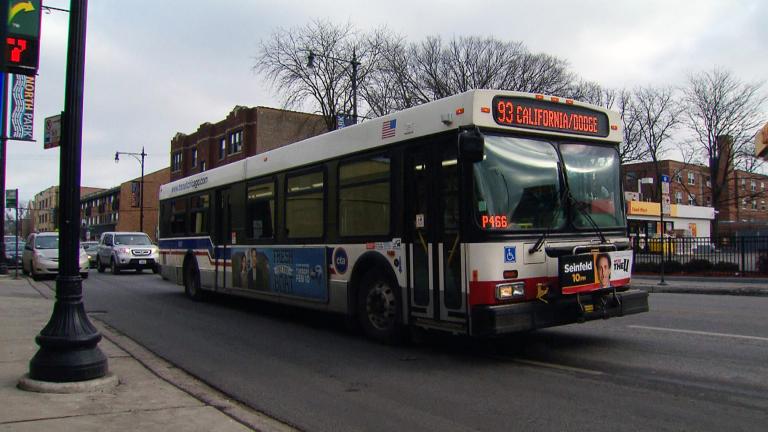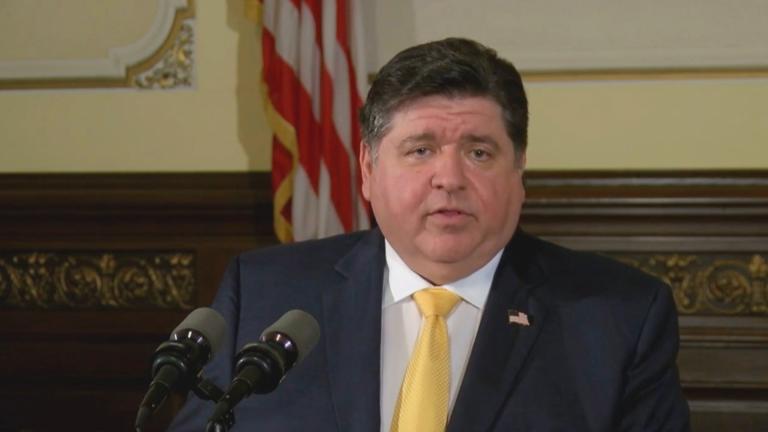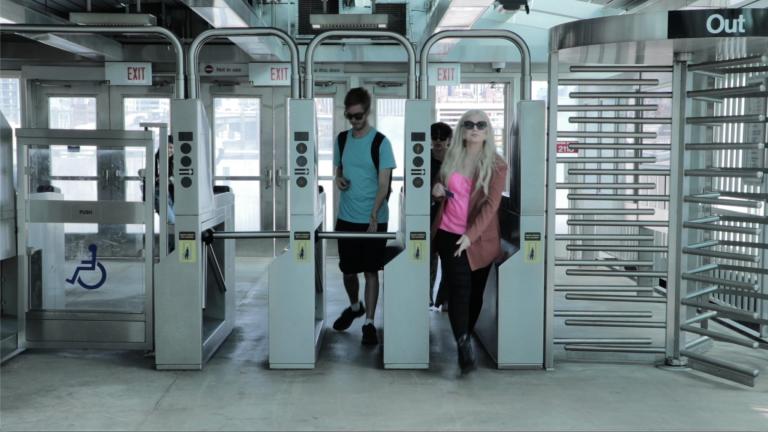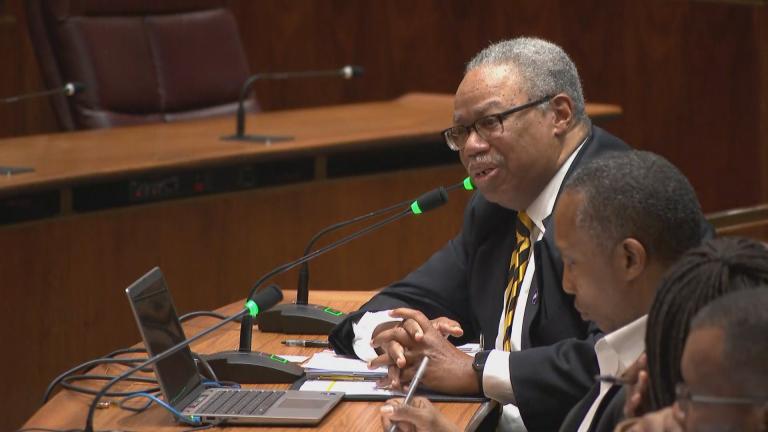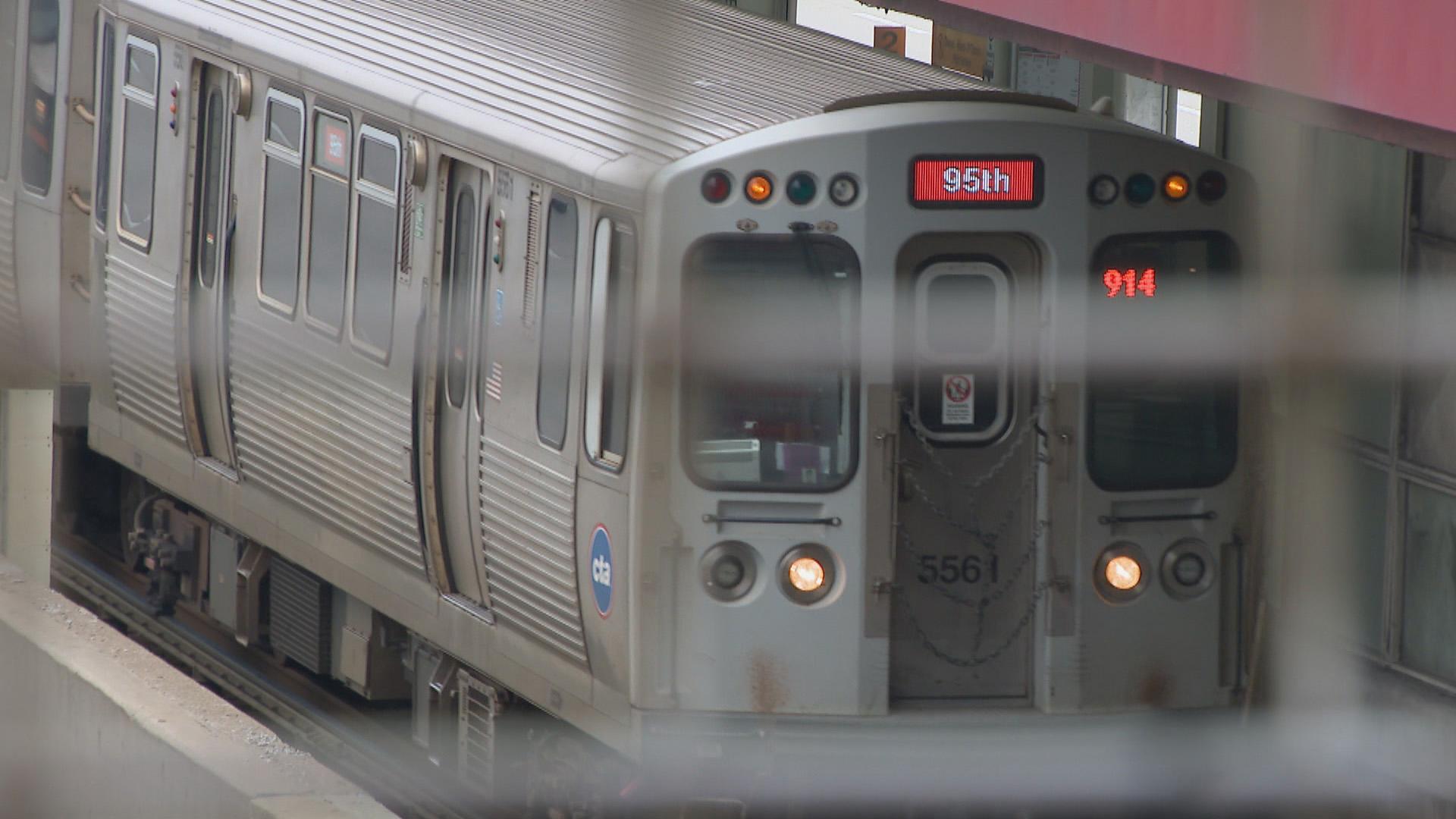 (WTTW News)
(WTTW News)
The Chicago Transit Authority continued to rely on bus and train operator overtime to keep the system running during 2023 — but the transit agency has yet to provide WTTW News with detailed information on operator hours, despite a formal request made nearly two months ago.
State law requires public bodies like the CTA to respond to Freedom of Information Act requests within five working days. Agencies may extend the deadline another five days under several scenarios spelled out in the law.
On Jan. 18, WTTW News filed a request for a document showing how many hours operators were paid for during 2023; it’s a request WTTW News has made multiple times in the past for previous years’ data. While employees earn time and a half for overtime, WTTW News requested 2023 information in the same format as prior years, which did not include the so-called “OT multiplier” and allowed for a clear analysis of the long hours some operators put in.
The CTA’s FOIA office did not provide any information until Feb. 12, well past 10 business days. Just hours before a deadline two weeks ago to offer comment for a planned story, a CTA spokesperson provided written statements and information — but alerted WTTW News to the fact that the information provided this year contained the OT multiplier, despite the request for information in the same format as previous years.
That Feb. 26 conversation — 10 business days ago — prompted WTTW News to hold its story. Since then, the CTA has yet to provide corrected information on operator hours.
Illegally delayed responses are a chronic problem with the CTA’s FOIA office. Other news organizations and advocacy groups, including Block Club Chicago and Commuters Take Action, have also dinged the agency for its FOIA transparency failures.
“The CTA and its FOIA Department are committed to being thorough, transparent and responsive to the hundreds of FOIA requests it receives each year,” the agency told WTTW News in a statement. “Every FOIA request receives due consideration and effort to provide an accurate and complete response in a timely manner.”
But the agency added that since FOIA law allows for requests of a broad range of information, some of which may not be readily available, “fluctuations in the volume and complexity of FOIA requests can have a detrimental impact on FOIA response times, regardless of planning and staffing.”
The statement also said that the FOIA office has received some 100 or more requests in the last three months, including clusters of requests and some that involve voluminous records.
“CTA is working to quickly address more complex requests, while maintaining appropriate transparency and responsiveness to all FOIA requests received,” the CTA said.
While the agency said the FOIA office has recently been swamped, the CTA has never within memory responded to a FOIA request from WTTW News within the legally required timeline, taking weeks or months to produce requested records.
Despite still not sending information on operator working hours as required, available information indicates the CTA continues to rely on overtime as the agency works to attract and retain adequate staff.
“CTA and other transit agencies across the country have had more opportunities for existing personnel to earn overtime pay, as they work to strengthen their workforces,” the agency said in a statement. “However … the total unscheduled overtime hours CTA paid out in 2023 decreased for both bus and rail operators compared to 2022.”
While unscheduled hours decreased, the agency’s budgeted overtime for bus and rail operations in fiscal year 2023 — which includes several positions in addition to operators — has still increased sharply over the last several years.
Budget data provided to WTTW News shows bus operations came in nearly $600,000 under budget last year. But the CTA still spent $2.4 million more on bus overtime in 2023 than in 2019. The agency’s highest paid operator in 2023, a bus driver, earned $212,232 — more than two and a half times the standard yearly rate.
The CTA said it hired 2,200 new employees in 2023, including more than 1,000 new bus operators, which the agency said was the most new drivers it’s ever brought on. That helped keep pace with retirements and resignations, something CTA has struggled to do since the onset of the pandemic. But the bus operator ranks are still about 300 drivers short of the CTA’s pre-pandemic levels, according to publicly available staffing lists.
While bus hiring is trending positively, the agency saw an overall drop in train operators between 2022 and 2023. The CTA had a net gain of just 42 more rapid transit operators during 2023 than the prior year, a WTTW News analysis of those staffing lists shows — not enough new operators to keep up with employee departures.
The agency said nearly 90 employees became rail operators last year, and that it hired 159 flaggers in 2023. That position, which involves overseeing the safety of crews on train tracks, is a required precursor to a train operator position.
Rail operations overtime in 2023 also came in under budget, by $1.6 million, though that also reflects that the CTA planned for an outlay more in line with previous years when rail costs exceeded expectations.
In its statement, the CTA said its rail recruitment efforts are off to a “strong start,” citing a January event that drew more than 1,000 applicants.
“The framework we have in place will provide more than enough flaggers to meet our 2024 training goal of 200 operators,” the agency said. “And when those flaggers become operators, we will have a large pool of internal and external applicants ready to backfill vacant flagger positions.”
In addition to hefty paychecks for some workers, overtime also affects the transit agency’s retirement plan, as CTA workers — in a perk unique to them among public employees in Illinois — can count overtime toward their pensions. As of Jan. 1, 2023, the plan was just 54.2% funded.
The continued reliance on long workweeks for some employees came amid ongoing efforts to improve service levels and draw back riders. The CTA said 2023 saw a 15.5% increase in bus ridership and a 13.4% rise on the train lines. But ridership numbers are still only about 60% of pre-pandemic levels, with federal COVID-19 relief funding making up the continued shortfall in passenger revenue. Money from riders’ fares and passes in 2023 was $256 million below what the CTA took in from passengers in 2019.
During February’s board meeting, the CTA’s deputy CFO/comptroller told directors the agency has used up more than 53% of relief cash, with $1.04 billion remaining. The CTA projects that money will last into early 2026.
The agency’s use of overtime comes with health and safety concerns for workers in demanding jobs like bus and rail operators. Experts say long hours and short turnaround time can cause sleep deprivation and fatigue. Under current CTA rules, employees are only required to have eight hours off between shifts.
“CTA’s practice … does not give the employees the opportunity to receive enough uninterrupted sleep to be fully alert and operate safely,” the National Transportation Safety Board wrote in a report after a 2014 Blue Line crash in which the operator fell asleep at the controls.
While the CTA attempted to increase the turnaround time to 10 hours, the agency previously told WTTW News the unions representing bus and train operators rejected that plan.
In its statement, the agency said that in addition to eight hours between shifts, operators can’t work longer than five and a half hours without a 30-60 minute break, and said they must complete federally mandated sleep apnea and fatigue training.
“Every effort is made to provide a safe work and travel environment, while also offering opportunities to pursue additional income,” the CTA said.
The agency also noted that under the agreement with the unions representing bus and train workers, operators can’t work longer than 13 hours unless “requested by management in emergency circumstances and the employee does not exhibit signs of fatigue; or in instances in which the employee has completed their scheduled and/or OT shift, but must stay on CTA property for administrative purposes (i.e., meeting with management or filling out reports).”
“Recently, and on the bus side of our operations, we began testing a new active detection collision avoidance technology available on some of our newer buses,” the CTA added. “This technology, while not new to the automotive world, is still fairly new to public transit buses and helps make bus operators more aware of pedestrians, bikes and scooters.”
Critics of the CTA said despite the schedule changes and added staff, the agency still isn’t fully meeting its customers’ needs.
“We don’t see 100% of service delivery every day, or even most days,” said Commuters Take Action’s Brandon McFadden, “because when you sit and hope that your operators are going to take overtime shifts every single day, or even just a couple of days a week, they’re going to get burnt out and it’s just not going to work.”
McFadden added that while his organization has previously had to involve the division of the Illinois attorney general’s office that oversees FOIA requests in order to get responses in a reasonable amount of time, things seem to have been improving somewhat recently. He also added that Commuters Take Action’s sometimes contentious relationship with the CTA has been aided somewhat by the transit agency’s addition of an engagement officer.
But McFadden called on the agency to make changes that would allow it to hire transit operators directly to better address the staffing gap and improve service.
“The transit agencies in our region are on the edge of a fiscal cliff,” McFadden said. “Asking (legislators) for more money is a little bit more difficult, because nobody really wants to give money to an agency that isn’t necessarily fulfilling (its) promises.”
WTTW News’ Jared Rutecki contributed to this report.
Contact Nick Blumberg: [email protected] | (773) 509-5434 | @ndblumberg

